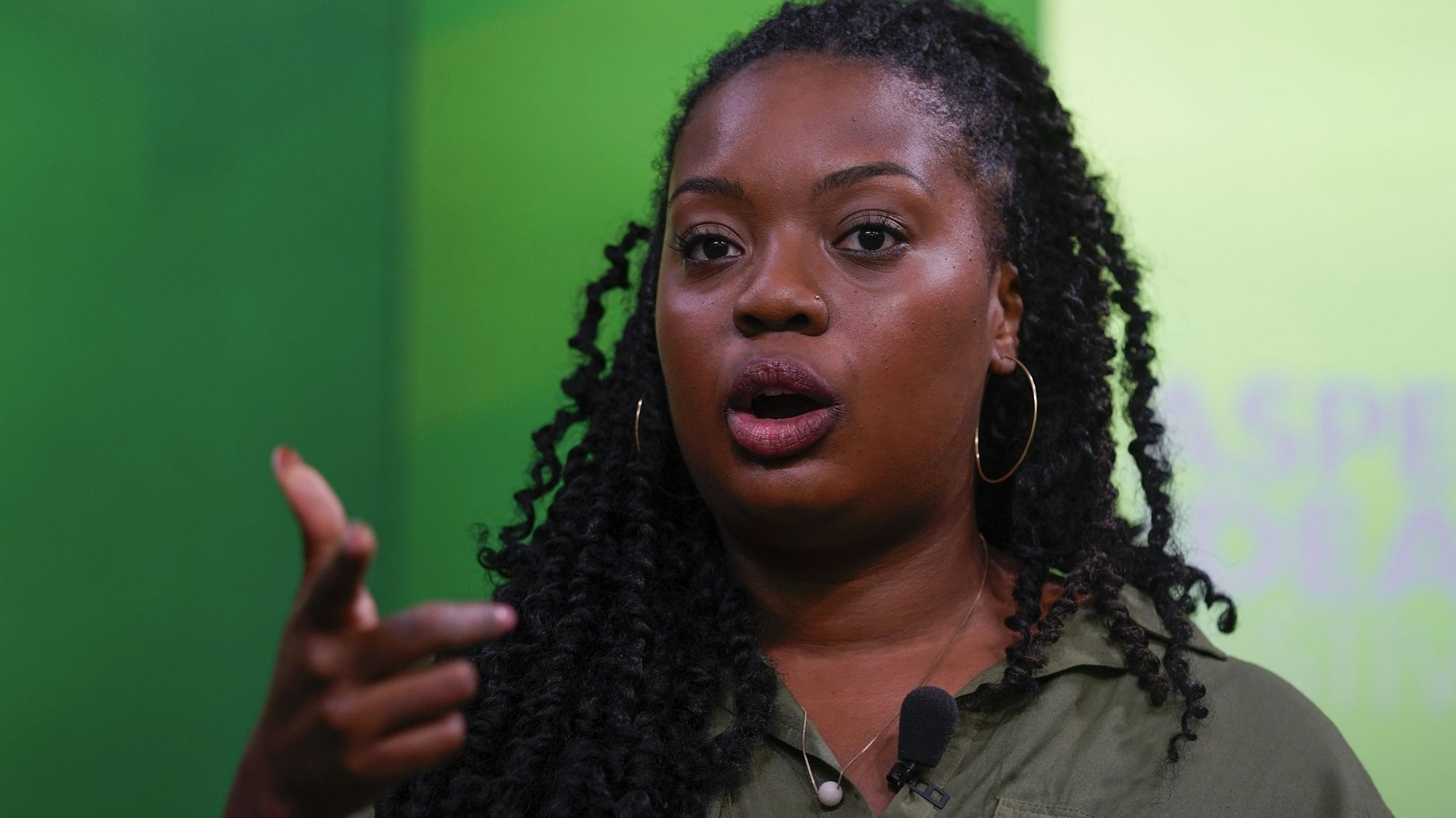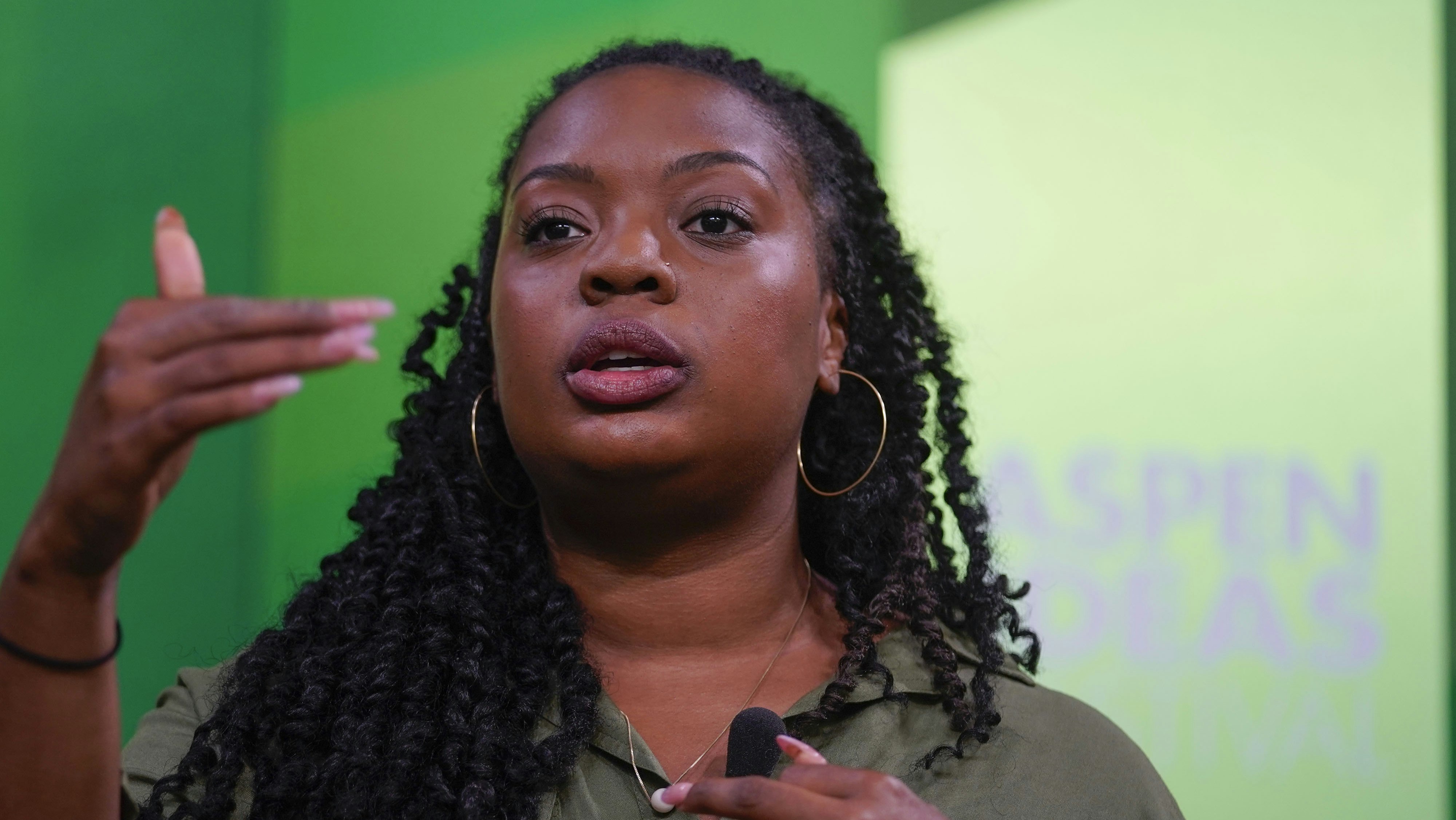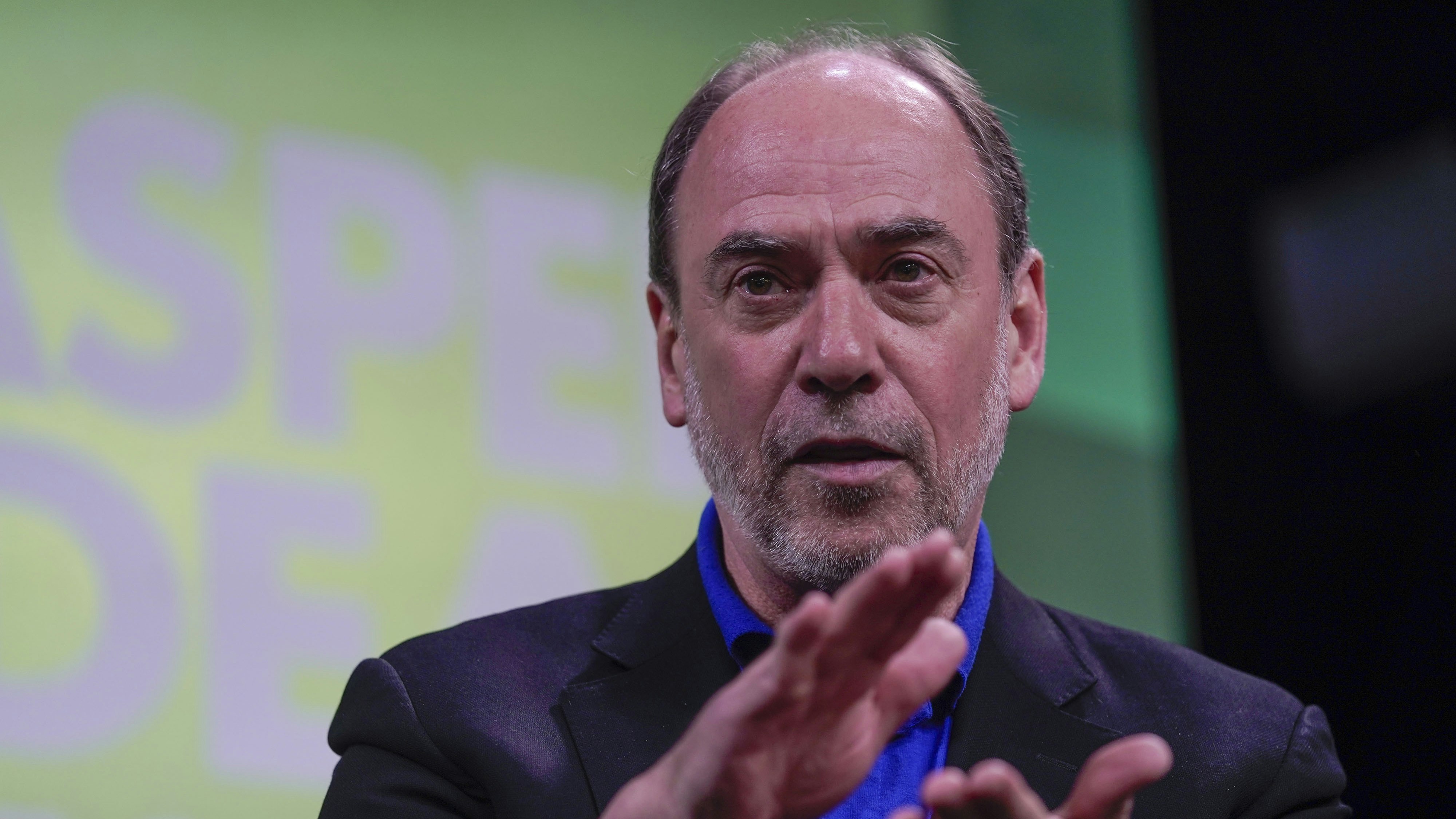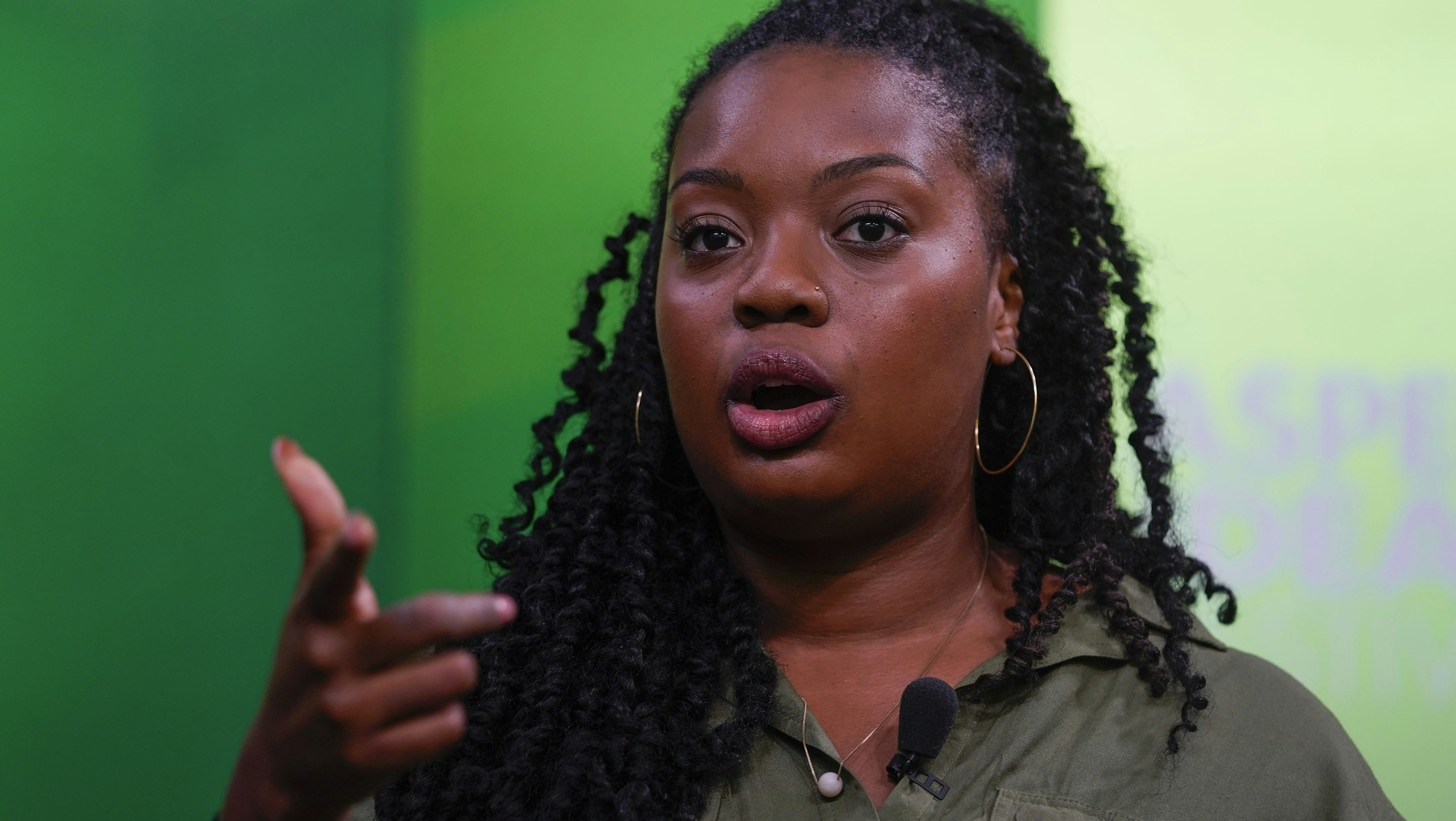
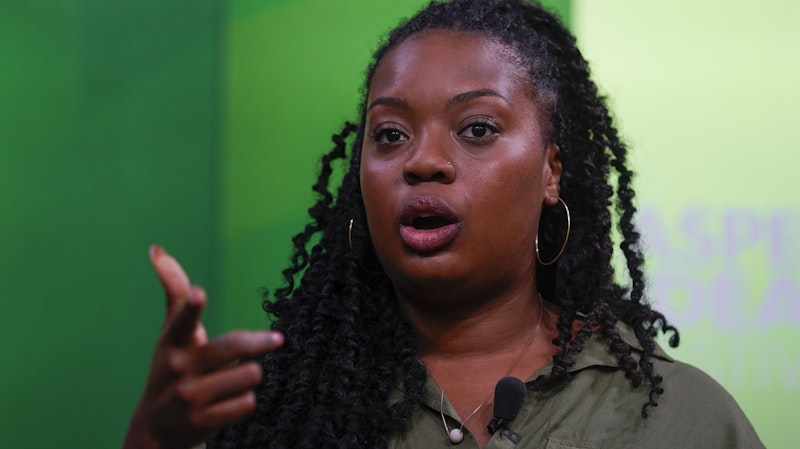
What Will the Green New Deal Cost, and What Can It Save?
Setup
Many experts argue that massive government mobilization on the scale of World War II deployment is needed to address the catastrophe of climate change. Such is the scope of the Green New Deal, a policy calling for 100 percent renewable energy by 2030, universal health care, living wages, and jobs guarantees. But some economists argue it could cost between $51 trillion and $93 trillion over 10 years. What is the connection between climate and social democracy the Green New Deal prioritizes? Are we crazy to think anything less substantial will prepare us for what’s ahead? Hear from both the person considered the architect of the policy and a Republican whose think tank has analyzed its costs and benefits.
- 2019 Festival
- Health
- Environment
- USA
What’s new about the Green New Deal?
The Green New Deal generated a lot of buzz when it was unveiled in 2018, but in some ways it’s one of many in a long history of ambitious climate policy proposals — most of which never even garnered serious debate. Moderator and journalist David Leonhardt asks Rhiana Gunn-Wright, a chief architect of the Green New Deal, what makes it different from policies that came before it:
The Green New Deal is an unprecedented proposal to tackle what Gunn-Wright calls “the twin crises of income inequality and climate change” simultaneously. Gunn-Wright sees income inequality and climate change as inextricably linked, and the Green New Deal is designed to ensure that climate change isn’t tackled on the backs of society’s most vulnerable.
Is the Green New Deal set up to fail?
Douglas Hotlz-Eakin, head of the American Action Forum, actually supports the goals of the Green New Deal. What he disagrees with is how the policy is structured. Any one facet of the Green New Deal would be tricky to pass on its own, says Holtz-Eakin, and he worries the whole bundle is simply politically untenable.
Big IdeaThe combination of politics and policy — can you get it done?Douglas Holtz-Eakin
Rhiana Gunn-Wright explains how the Green New Deal could help people see the link between financial and physical well-being and climate change in new ways. She uses the example of children who are starting to experience climate change-related health issues because of where they live. If parents miss work to take a sick child to the hospital, those lost hourly wages are a direct result of climate change. Gunn-Wright hopes this type of thinking will encourage broad support for the Green New Deal.
A Green Tax Deal
David Leonhardt presses Douglas Holtz-Eakin to come up with a politically feasible solution to climate change, and Holtz-Eakin suggests a marriage of tax reform and climate policy — a Green Tax Deal:
Holtz-Eakin agrees that climate policy will only become law if paired with other policy aims. But instead of New Deal-esque inequality policy, which doubles down on political polarization, Holtz-Eakin proposes deregulatory tax reforms that are more palatable to conservative lawmakers.
How to take the Green New Deal worldwide
Climate change is a global crisis, but is the Green New Deal a global solution? Rhiana Gunn-Wright explains how it could be:
Gunn-Wright readily admits that the Green New Deal only addresses the causes and effects of climate change in the US. But she sees the Green New Deal as both a symbolic and practical framework that the rest of the world can follow.
Learn More
Additional Information
Resources
The Green New Deal (full text) - New Consensus
Explore More
Health
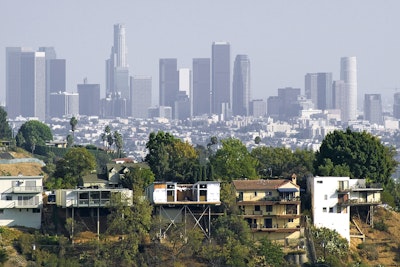
Capitalism has delivered prosperity for many, but not for all. Disparities according to gender, race, and geography have left millions behind, while rising concentrations of w...


The rapid development of the Covid-19 vaccine and the ramp-up of manufacturing and global distribution were unprecedented feats of medical coordination. But those on the insid...

Since 2014, Aspen Ideas: Health has welcomed nearly 800 inspiring women leaders to our stages to share their bold approaches to better health. In honor of Women's History Mont...

Global conflicts and health crises have put into stark relief deeply-ingrained gender roles in society. Yet the past years have also seen record-high numbers of women running...


Creativity is as intrinsic to our species as any of our basic instincts, says Debbie Millman, designer and curator. But for millions of people in the United States, the abilit...

Our attitudes, habits, pleasures, and responsibilities shift across the generations, influencing the health challenges we face and how we respond to them. Expectations about h...

Of course, Black history shouldn’t just be a month-long nod on our yearly calendar — it is inextricable from American history and fundamental to the very soul of our nation an...

Setting audacious goals helps to redefine what is achievable in health, medicine, and science. As we deepen understanding of the human genome, unravel the mysteries of the bra...

As we wrap-up another year of elevating big ideas at Aspen Ideas: Health, we're excited to share the 15 most-watched sessions from the event. These conversations with inspirin...


Each year brings more destructive natural disasters and growing evidence of the challenging future we face if we don’t address climate change. But the biggest cause of climate...


Many more Americans are struggling to survive and make ends meet than is typically portrayed in the media and public policy debates. And when poverty is depicted, harmful and...
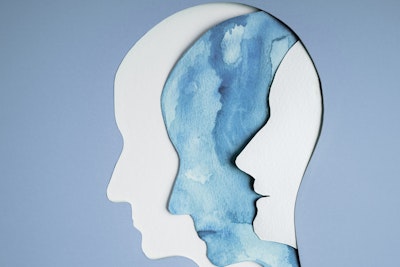
In America, millions of people struggle with mental health including depression, anxiety, and more — all further exacerbated by living through a pandemic. The National Allianc...
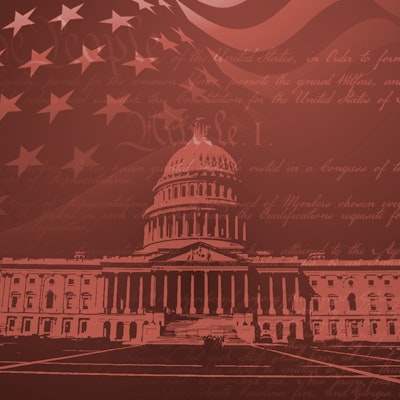

America’s “second founding” came on the heels of the Civil War, when the architects of the 13th, 14th and 15th amendments thought long and hard about how to enshrine civil rig...


If we do absolutely nothing to mitigate climate change, scientists estimate the toll could be $38 trillion a year in damages. Industrialized countries like the United States,...

The United States spends $4.3 trillion—almost one fifth of the nation’s GDP—on health care. As the scale of the medical enterprise expands, venture capitalists are pursuing th...

Today's kids are coming of age against a backdrop of political, social, technological and economic upheaval. While these circumstances are shaping a precocious generation that...

Advocates, healthcare providers, legislators, researchers, and venture capitalists are bringing the unique health needs of women to light – from vigorous policy debates on iss...

From the debate over reproductive rights to the epidemic of gun violence to the youth mental health crisis, this year's Aspen Ideas: Health sessions tackled many of today's mo...

The recognition that all things are connected is at once a scientific principle and a philosophical touchstone. Humans, animals, and the environment are intertwined in complex...


It’s been decades since the United States has updated its immigration policies in any sort of comprehensive way, and the problems and suffering at the southern border have per...


